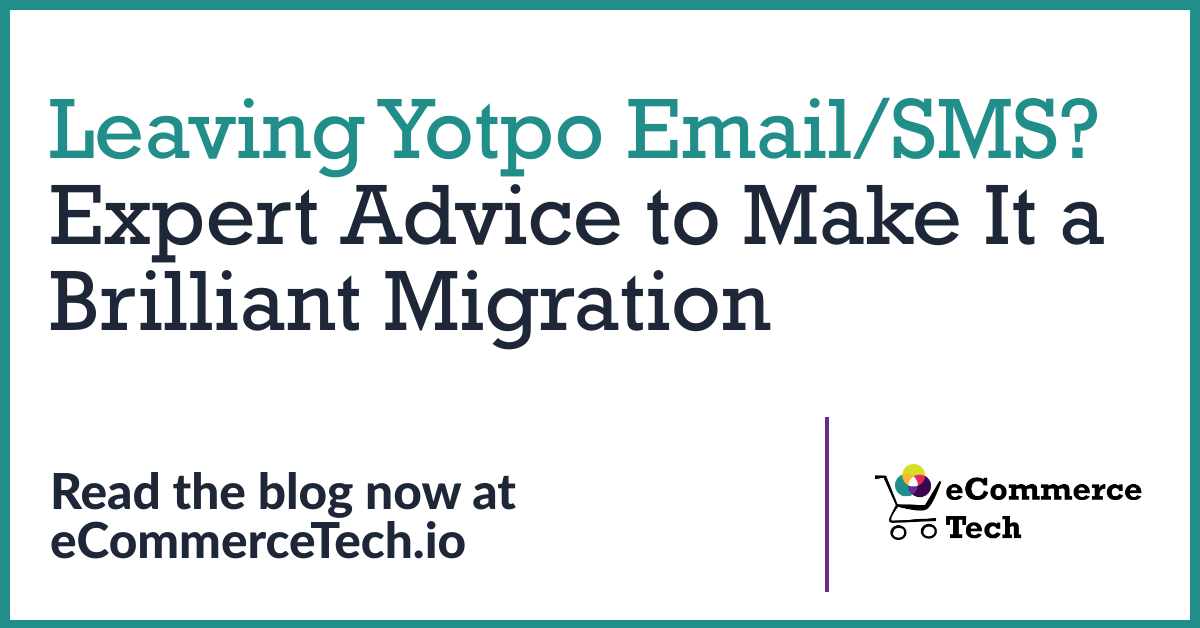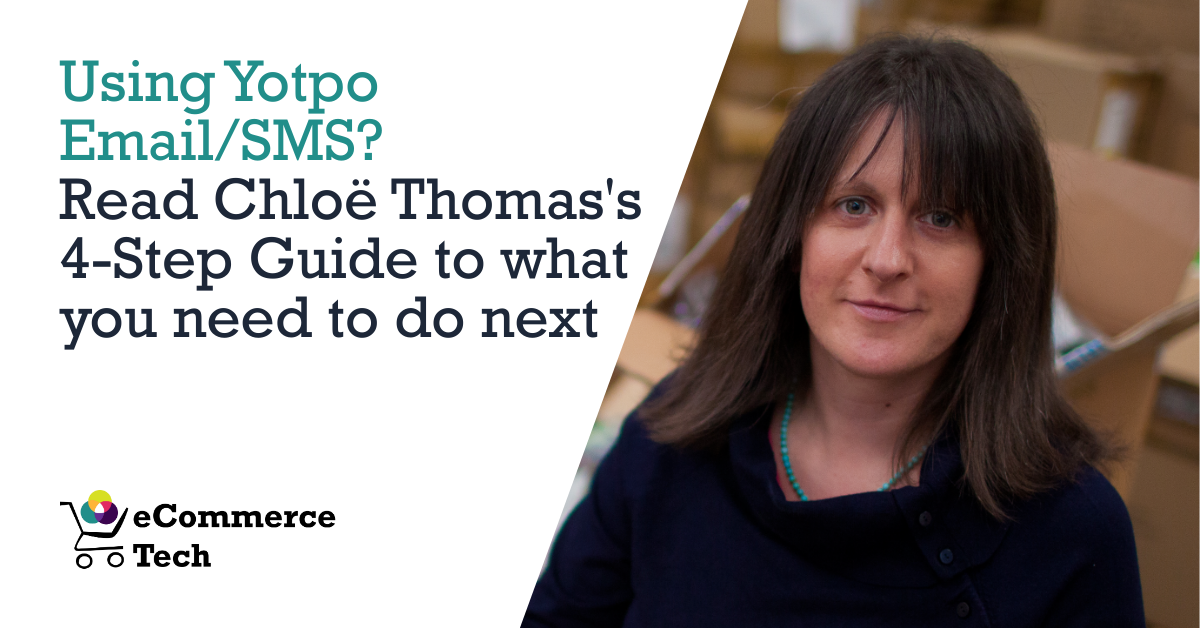Nobody gets excited about email marketing software.
You don't see founders posting on LinkedIn about their ESP the way they brag about their new 3PL or that influencer partnership. Email tools live in the background. They do their job. They don't get invited to the party.
But here's what's funny. That boring email platform sitting in the corner? It's responsible for 30-40% of your revenue. Sometimes more.
The math is almost embarrassing. For every dollar you put into email, you get thirty-six back. Not in "impressions" or "reach" or whatever metric your paid ads dashboard invented this week. Actual money. In your account. That you can spend on things.
So why do so many store owners treat their ESP like an afterthought?
Part of it is the sheer overwhelm. There are hundreds of these platforms. Every single one claims to be "the #1 email marketing solution for eCommerce." Every single one has case studies showing 47% revenue increases. Every single one has a pricing page designed to confuse you into booking a demo.
We're going to cut through that.
Before we get into the tools
Shopping for email tools means wading through a mess of overlapping acronyms. ESP, CRM, CDP - they get thrown around interchangeably even though they mean different things. Here's the quick version:
- ESP stands for Email Service Provider. It sends your emails. Campaigns, automations, and the welcome sequence that fires when someone joins your list. If you're reading this article, you're looking for an ESP.
- CRM stands for Customer Relationship Management. It tracks everything about a customer - not just emails, but purchase history, support conversations, and notes from your sales team. Most modern ESPs now have CRM features baked in, so the line has blurred.
- CDP stands for Customer Data Platform. It pulls data from everywhere - your store, your ads, your app, your physical locations - and stitches it into one customer profile. This is enterprise territory. If you're under eight figures, you don't need a standalone CDP.
Where you are in business matters more than features:
A brand new store and a $50 million operation have completely different needs. Sounds obvious, but most comparison articles ignore this.
When you're just starting, you need something cheap that works. Pre-built templates. A welcome sequence you can launch in an afternoon. Pricing that doesn't make you wince every month while you're still figuring out product-market fit.
Once you're established and growing, optimization becomes the game. You've got campaigns that work - now you want to squeeze more from them. Better segmentation. Smarter timing. The ability to treat your best customers differently from your bargain hunters.
At enterprise scale, everything changes again. You need the platform to fit your workflow, not the other way around. Custom integrations. Dedicated support. The flexibility to do weird things that the software wasn't initially designed for.
The three platforms we've picked can carry you through multiple stages. You won't have to rip everything out and start over when you hit your next growth milestone.
Our Choice for the Best Email Marketing Platforms for eCommerce
Your business stage and priorities should drive your ESP choice. A scrappy startup testing product-market fit needs different tools than an established brand squeezing every dollar from a 200,000-person list.
We've picked three platforms that cover different sweet spots. Klaviyo for brands that want serious data power and don't mind paying for it. Omnisend for merchants who want email, SMS, and push notifications working together without the complexity. GetResponse for stores that need landing pages, funnels, and webinars alongside their email marketing.
Klaviyo
There's a reason Klaviyo shows up in almost every "tech stack" screenshot posted by successful DTC brands. It wasn't the first eCommerce email platform, but it understood something the others missed: data is the whole game.
While competitors were focused on prettier templates and easier drag-and-drop builders, Klaviyo was building pipes. Deep connections to Shopify, WooCommerce, and Magento. The ability to pull in not just "someone bought something" but exactly what they bought, how often they buy, what they looked at but didn't purchase, and which discount code they used.
That foundation lets you do things that feel remarkably precise. Send a campaign only to people who've bought twice in the last 90 days and haven't opened an email in the last 2 weeks. Trigger a flow when someone views a product three times without adding it to the cart. Segment by predicted lifetime value before the customer has even made their second purchase.
- Tech Stack Type: Standalone ESP with CRM built in
- Best for: Mid-Sized, Enterprise
- Pricing: See our pricing information here
What Makes Klaviyo Great?
The predictive analytics do things that would require a data science team anywhere else. Expected next order date. Churn risk scores. Lifetime value predictions based on early behavior patterns. This stuff runs automatically in the background - you just build segments around it.
The flow builder handles complexity without becoming a nightmare to manage. You can create branching logic that would make a flowchart designer weep, and it remains readable six months later when you need to update something.
And the Shopify integration is explicitly best-in-class. Product feeds, discount codes, subscription data, customer tags - it all syncs without you touching anything.
AI Summary of Customer Reviews of Klaviyo
The word that comes up most in reviews is "productive." One marketing analyst said she's "always productive when working with Klaviyo" because everything is one or two clicks away. Users praise the depth of customization for emails and flows as something they haven't found on other platforms.
The complaints cluster around a few areas. Pricing climbs quickly as your list grows, and several reviewers mentioned feeling "locked in" once their automations get complex. Segment loading is slow - one user specifically called out that competitors load segments "in less than a second" while Klaviyo "takes minutes." Support is email-based with no real live chat, which frustrates people who need quick answers.
The overall sentiment? Expensive and occasionally frustrating, but still the platform most serious eCommerce operators choose when email revenue is a priority.
Omnisend
Omnisend carved out its space by asking a simple question: why should email, SMS, and push notifications live in separate tools?
For many store owners, the answer is "they shouldn't." You want to send an abandoned cart email, then follow up with a text if they don't open it, then hit them with a push notification as a last resort. Doing that across three platforms means three dashboards, three billing cycles, and a lot of manual coordination.
Omnisend puts it all in one place. Same automation builder. Same customer profiles. Same reporting. You can see the full picture of how someone interacted with your brand across every channel, not just email.
The tradeoff is that it's not as deep in any single area. Klaviyo's email segmentation is more powerful. Dedicated SMS tools have more features. But if you want a single platform that handles 80% of what specialists do across multiple channels, Omnisend makes a strong case.
- Tech Stack Type: Standalone omnichannel marketing platform
- Best for: Start Up, Mid-Sized
- Pricing: See our pricing information here
What Makes Omnisend Great?
There's a feature called Campaign Booster that automatically resends your email with a different subject line to people who didn't open the first one. It sounds small. But it consistently adds 10-15% more revenue to campaigns without any extra work on your end. Set it once, forget it exists, watch the numbers go up.
The free tier is genuinely helpful, not just a teaser to get you into a demo. You can run real campaigns and automations without paying anything until you hit meaningful volume. That matters when you're early-stage and every dollar counts.
And the learning curve is gentle. You can have flows running within a few hours of signing up, not a few weeks.
AI Summary of Customer Reviews of Omnisend
"User-friendly" appears in almost every review. One user called it "one of the most user-friendly tools I have encountered for CRM systems." Another specifically praised the "effortless navigation" of the automation setup.
The Shopify connection gets described as "simple" repeatedly. No complaints about sync issues or missing data.
Customer support stands out. Multiple reviewers mentioned it unprompted as "outstanding" and "fantastic," which is notable because people usually only mention support when it's terrible.
The platform attracts merchants who tried something more complex first and wanted relief. If you value getting things done over having every possible feature, Omnisend is a good fit.
GetResponse
GetResponse has been around since 1998. That makes it ancient by internet standards. Most tools from that era either died or became bloated enterprise software that nobody enjoys using.
GetResponse went a different direction. Instead of just adding features to email, they expanded into adjacent territory. Landing pages. Webinars. Conversion funnels. Paid ad management. It became less of an "email tool" and more of a "marketing platform that happens to be really good at email."
This matters if you're running a store that does more than just "send people to product pages." Maybe you're building an audience with content. Maybe you sell courses or digital products alongside physical goods. Perhaps you run webinar-based launches. GetResponse handles all of that without forcing you to stitch together five different tools.
The eCommerce integrations aren't quite as deep as Klaviyo's. But if your needs extend beyond pure retail email marketing, the breadth here is hard to match at this price point.
- Tech Stack Type: All-in-one marketing platform with ESP at the core
- Best for: Start Up, Mid-Sized
- Pricing: See our pricing information here
What Makes GetResponse Great?
The conversion funnel builder lets you create complete sales funnels - landing page, email sequence, payment processing - without leaving the platform. For stores that run promotions, launch products, or sell anything with an educational component, this saves hours of setup and eliminates the headaches of connecting separate tools.
The AI template generation is actually useful, not just a gimmick. You give it some direction and get back something you can work with, not something you have to rebuild from scratch.
And the drag-and-drop builder is fast. Like, noticeably faster than competitors. When you're making lots of emails, that speed difference adds up.
AI Summary of Customer Reviews of GetResponse
"Fast and accurate" is often used to describe the email builder. One reviewer mentioned generating "thousands of different email templates in seconds," which, even if exaggerated, suggests real efficiency.
The analytics dashboard gets praised for being clear and comprehensive without overwhelming you with data you'll never use.
Customer support scores well. One user summarized their whole experience as "surprisingly positive" - they expected less and got more.
The complaints are minor. Account management has some friction - switching owners or accessing invoices requires more steps than it should. But nobody's complaining about the core email functionality.
Find Your Perfect Email Marketing Platform
These are just our picks from the hundreds of email marketing options out there. You can find more in our tech directory - click here to go straight to the Email Marketing category.
All three of these platforms can drive serious revenue. The question isn't which one is best - it's which one fits the way you work.
Klaviyo is overkill if you're setting up two flows and sending a monthly newsletter. Omnisend's omnichannel features are pointless if you don't plan to use SMS. GetResponse's funnel builder is wasted if you just want to email your list.
Be honest about what you'll actually use. Then pick accordingly.
One practical tip: when you're evaluating these tools, don't just play with the email builder. Test the integration with your store. That's where the real differences show up. How cleanly does purchase data sync? Can you segment by product purchased without manual workarounds? Do customer tags flow through correctly?
The answers to those questions matter more than which one has prettier templates.
If you're looking for a deal, check out our Deals section. Email marketing offers show up regularly.
Want to see your tech here? Get in touch.






